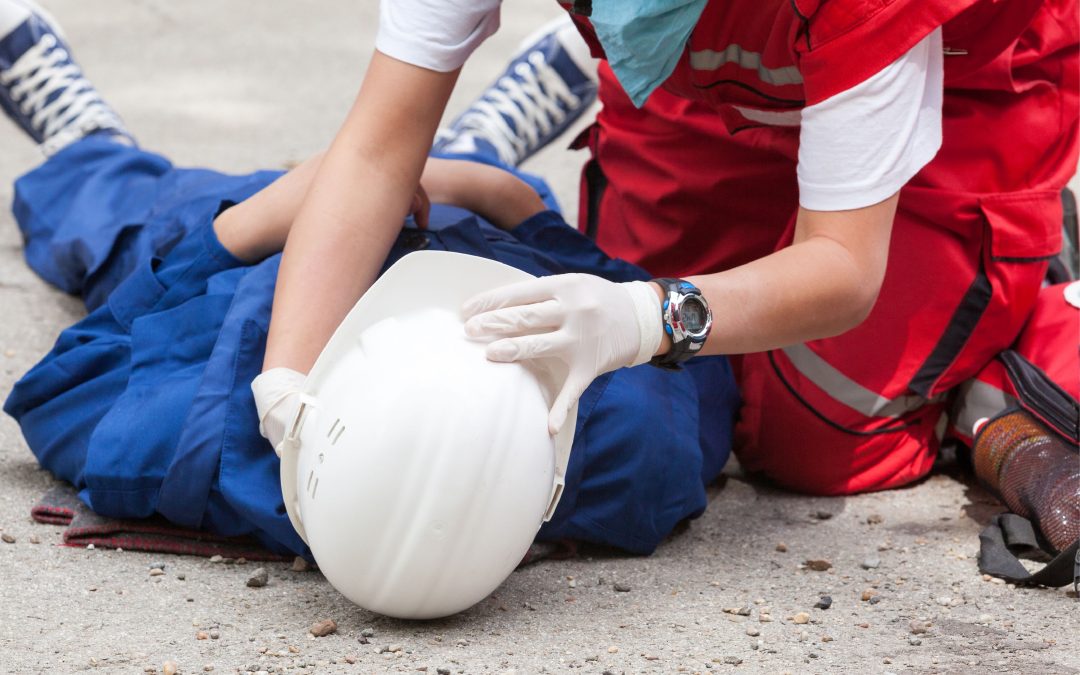The importance of being able to act effectively in a world where emergencies could be sudden and irresistible cannot be overstated. Alison, in collaboration with Save a Life Certifications by NHCPS, offers crucial life-saving certifications that empower both health care providers and members of the public. These free courses range from advanced cardiac life support to basic life support, CPR, first aid, ECG interpretation, and bloodborne pathogen safety among others to better prepare you for making a significant impact on critical situations.
However, our goal stretches far beyond providing affordable learning experiences; we seek to create confidence and competence in first responders during medical emergencies within hospitals, schools, and communities. Such certificates are designed specifically to equip learners with the relevant skills and knowledge for saving lives as well as improving patient outcomes. Keep reading in order to know about some of the core training modules that turn ordinary people into ready lifesavers.
Advanced Cardiac Life Support (ACLS) Certification
The free ACLS course goes beyond basic first aid and provides healthcare professionals with the skills needed to handle cardiac emergencies. This certification is important for professionals who need to perform advanced procedures quickly and accurately. The course covers:
- Advanced CPR Techniques: Improving chances of survival from a cardiac arrest.
- AED Utilization: In-depth training on effective use of Automated External Defibrillators (AEDs).
- Airway Management: Critical steps for ensuring patient breathing.
- Cardiac Care Medications: Knowledge of essential drugs used during cardiac emergencies.
- Early Management of Emergencies: Identification and management strategies for early signs of heart and lung distress.
- Team Communication: Improved coordination and communication among emergency response teams.
Pediatric Advanced Life Support (PALS) Certification
Tailored for pediatric emergencies, the free PALS course focuses on the unique challenges of caring for young patients.
This course is essential for health care professionals working in pediatric and neonatal settings, covering:
- Pediatric Assessment: Specialized techniques for evaluating young patients.
- Management of Respiratory and Circulatory Emergencies: Advanced methods for the unique needs of children.
- Effective Resuscitation Strategies: Adapting approaches to suit the physiological differences of children.
- Medication Dosages: Accurate dose information for pediatric medications.
- Team Dynamics in Pediatric Care: Enhancing quick decision-making in high-stress situations involving children.
CPR Certification
Our free CPR (Cardiopulmonary Resuscitation) Certification course is intended not only for health care workers but also for anyone who wants to learn the essential lifesaving techniques.
Key components of Our CPR Certification course:
- Rapid Response Training: Gain these skills that enable you to quickly recognize and respond to cardiac and respiratory emergencies. Often immediate action can save a life, hence our course is designed to develop your capability of handling such moments.
- Chest Compressions and Ventilations: Learn to perform effective chest compressions to maintain vital blood flow. You will also master safe ventilation methods that are required to support the breathing process.
- Automated External Defibrillator (AED) Use: In sudden cardiac arrest situations it is important to have basic skills in operating AEDs, which are a must-have tool in order to restore normal rhythm of the heart.
Additionally, recognizing the diversity of our global community, we also offer the CPR certification course in Spanish. This ensures that Spanish-speaking learners can fully benefit from the same high-quality training, making these vital skills more accessible and helping to expand the network of trained individuals capable of responding to emergencies.
Basic Life Support (BLS) Certification
The free Basic Life Support (BLS) certification course is important for healthcare workers and first responders. The course equips students with the necessary skills needed to handle life-threatening emergencies, ensuring that learners are well-prepared to offer aid in emergency situations.
By completing the BLS course, you will be able to gain important skills, such as:
- High-Quality Chest Compressions: This core component of BLS training emphasizes the importance of using accurate compression techniques and how sufficient pressure levels applied to patients with cardiac arrest is needed to maintain blood circulation.
- Airway Management: Learn how to effectively clear and secure airways, a vital skill necessary in emergency situations such as airway obstruction or the inability of a patient to breathe on their own.
- Rescue Breathing Techniques: Training includes how to provide effective ventilations using barrier devices, which are essential when dealing with respiratory arrest or when CPR needs to be provided to the patient.
First Aid Certification
The free First Aid Certification course is designed to prepare individuals to respond effectively in a varied number of emergency situations. This course enables learners to administer first aid in stressful conditions, ensuring that they are prepared to provide care until professional medical assistance arrives. Some of the key components of the First Aid course are:
- Emergency Assessment: Learn how to quickly and accurately assess emergency situations and determine the priority of care required by an injured or sick person.
- Practical Skills for Common Injuries: Gain hands-on skills to treat common injuries such as cuts, burns, fractures, and sprains. Knowing how to manage these can reduce the severity of the injuries and help with faster recovery.
- Life-Saving Techniques: Crucial techniques like CPR, choking relief, and dealing with severe allergic reactions are covered in the course. Such skills will enable you to save lives during critical times.
- Preventive Measures and Safety: Understand why safety and preventive measures are required to avoid accidents and reduce the risk of injury. This includes the provision of creating a safe environment and knowing the legal aspects of providing first aid.
ECG Certification
The free ECG (Electrocardiogram) Certification course is tailored for health care professionals who are looking to learn more about ECG readings and their role in patient care. The course gives a background on how to interpret heart different rhythms and identify common complex ones. Some of the key aspects of the ECG course include:
- Understanding ECG Fundamentals: Explore electrocardiography basics and understand how an ECG tracing is broken down into its many components in order to help comprehend the function of the heart.
- Rhythm Analysis: Learn to recognize normal and abnormal heart rhythms, a critical aspect of diagnosing cardiac conditions.
- Diagnostic Interpretation: Learn how to interpret ECG results to make informed decisions about patient management and treatment plans. This includes understanding clinical implications that may arise following various EKG findings.
- Practical Application: Through interactive modules, you will apply your knowledge through interactive modules which simulate real-life situations enhancing your ability to effectively respond within clinical settings.
Bloodborne Pathogens (BBP) Certification
The free BBP course is designed to educate individuals on how to handle and respond to exposure to bloodborne pathogens safely. It is particularly important for those who work in situations where there’s a chance of being exposed to blood or other potentially infectious materials. The topics discussed in this course include:
- Understanding Pathogens: Knowledge about various bloodborne pathogens, including HIV, hepatitis B, and hepatitis C.
- Exposure Prevention: Measures and systems intended for preventing exposure to bloodborne pathogens.
- Emergency Procedures: Steps to take following an exposure incident to minimize health risks.
- Proper Use of Personal Protective Equipment (PPE): Training on correctly using and disposing of protective equipment properly to reduce pathogen transfer risk.
A Call to Preparedness
Every second counts in an emergency. By providing these certifications, Alison and Save a Life Certifications by NHCPS equip individuals with the skills needed to save lives. Whether you are a health care professional seeking to enhance your qualifications or an individual committed to preparedness, these free courses are designed to empower you to make a significant difference in urgent care situations.
We encourage everyone to embrace the opportunity to become trained in these vital skills. Join our community of lifesavers today and step into a role that could bring immense comfort and aid during critical moments.








